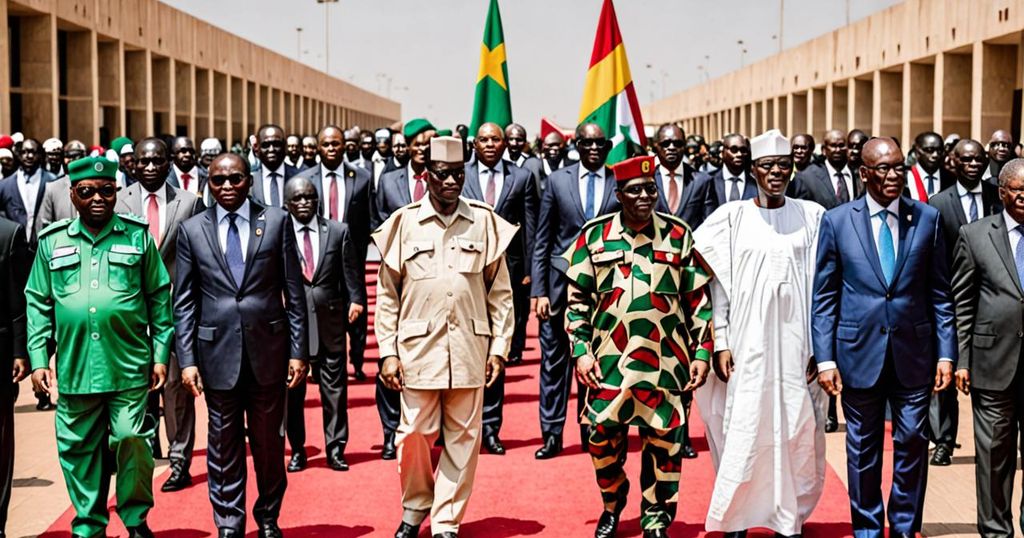The Implications of Niger, Burkina Faso, and Mali’s Withdrawal on the Fight Against Terrorism in West Africa
The recent decision by Niger Republic, Mali, and Burkina Faso to withdraw from the Economic Community of West African States (ECOWAS) has sparked apprehension regarding its potential impact on the fight against terrorism in the region. Ambassador Abdel-Fatau Musah, Commissioner for Political Affairs, Conflict and Security at ECOWAS, expressed disappointment over the withdrawal, emphasizing the unintended consequences it may have on coordination and cooperation against terrorism in the sub-region.
At the 42nd Ordinary Session of the ECOWAS Chiefs of Defence Staff Committee, Musah acknowledged that the delay in convening the meeting was a result of the extraordinary political developments in the sub-region, including the successive coups and the announced withdrawal of the Sahelian States from ECOWAS. He also noted that the three states cited the imposition of “inhumane sanctions” as the reason for their withdrawal.
The commissioner underscored the potential negative impact of the withdrawal on security matters, stating that it will inevitably undermine coordination and cooperation in the fight against terrorism and transnational organized crime in the region. He called for a reassessment of the peace and security booster going forward and urged the ECOWAS Defence Chiefs to finalize the planning of deployment to stabilize Sierra Leone and operationalize the ECOWAS Logistics Depot at Lungi in the Republic of Sierra Leone.
Nigeria’s Minister of Defence, Abubakar Badaru, also emphasized the importance of strengthening cooperation for peace, security, and stability in the region. He highlighted the need for new military strategies and coordination of regional security to effectively respond to emerging threats. Badaru urged the military echelon to deeply reflect on the complex security situation, underscoring the multi-faceted threats faced by the region, including violence, terrorism, insurgency, organized crime, and piracy.
The withdrawal of these countries from ECOWAS after almost five decades of diplomatic, political, and security cooperation raises significant concerns about the future of the fight against terrorism and transnational crimes in the sub-region. The need for effective coordination and cooperation among West African states in addressing these security challenges cannot be overstated. The withdrawal may disrupt ongoing efforts to strengthen collective resolve for a peaceful, stable, and prosperous ECOWAS.
It is evident that the implications of Niger, Burkina Faso, and Mali’s withdrawal from ECOWAS extend beyond diplomatic and political considerations. The potential impact on security and stability in the region underscores the urgency of addressing the underlying issues that led to the withdrawal. As the region grapples with evolving security threats, it is imperative for West African states to come together and reinforce their commitment to combatting terrorism and organized crime. The developments in the sub-region call for a renewed focus on collective security efforts and cooperation to mitigate the adverse effects of the withdrawal.
In conclusion, the withdrawal of Niger Republic, Mali, and Burkina Faso from ECOWAS has raised legitimate concerns about the implications for the fight against terrorism and transnational crime in West Africa. The need for a concerted effort to reassess security cooperation, devise new strategies, and bolster regional peace and stability has never been more crucial. As ECOWAS and its member states navigate this period of transition, it is essential to prioritize unity, collaboration, and coordinated action to address the security challenges facing the region.








Post Comment